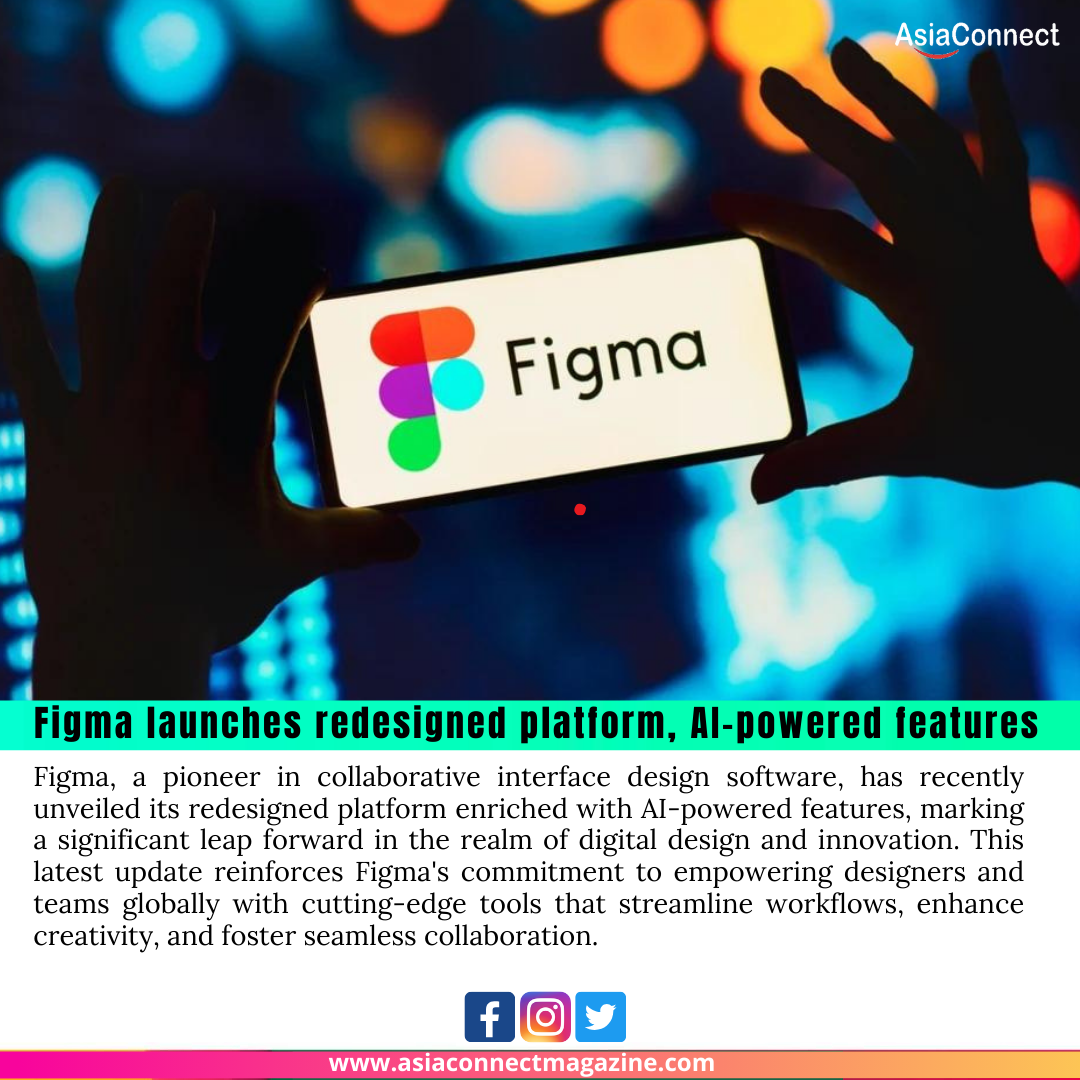Figma, a pioneer in collaborative interface design software, has recently unveiled its redesigned platform enriched with AI-powered features, marking a significant leap forward in the realm of digital design and innovation. This latest update reinforces Figma’s commitment to empowering designers and teams globally with cutting-edge tools that streamline workflows, enhance creativity, and foster seamless collaboration.
Redesigned Platform:
The redesigned Figma platform introduces a sleek and intuitive interface that enhances user experience across design projects. With a focus on simplicity and functionality, the new layout optimizes workspace efficiency, allowing designers to navigate effortlessly through various design elements and workflows. Whether you’re creating prototypes, wireframes, or high-fidelity designs, the redesigned Figma interface offers a seamless and enjoyable design experience.
AI-Powered Features:
Central to Figma’s latest update are its AI-powered features, which leverage machine learning to automate repetitive tasks, improve design consistency, and enhance productivity. One of the standout features includes AI-driven suggestions for design elements based on user preferences and project requirements. This functionality not only speeds up the design process but also helps maintain design coherence throughout complex projects.
Moreover, Figma’s AI capabilities extend to predictive design insights, where the platform analyzes user interactions and design patterns to provide actionable recommendations for optimizing user interfaces. This proactive approach empowers designers to make informed decisions and refine their designs iteratively, ensuring they meet both aesthetic standards and functional requirements.
Enhanced Collaboration:
Figma has long been celebrated for its real-time collaboration features, and the latest update further strengthens this aspect. Design teams can now collaborate seamlessly on projects, regardless of geographical location, thanks to improved performance and synchronization capabilities. Real-time editing, commenting, and version history tracking facilitate efficient teamwork and communication, reducing turnaround times and enhancing project delivery.
Furthermore, the redesigned Figma platform introduces enhanced version control features, allowing designers to manage iterations and revisions more effectively. This ensures that teams can experiment with design variations without the risk of overwriting previous work, promoting a flexible and iterative design process.
Accessibility and Integration:
Accessibility is another key focus of Figma’s redesigned platform, with enhanced support for accessibility standards and guidelines. Designers can now create interfaces that are more inclusive and user-friendly, catering to diverse user needs and preferences.
In terms of integration, Figma continues to expand its ecosystem by integrating seamlessly with popular third-party tools and services. This interoperability allows designers to leverage their preferred plugins, libraries, and asset management systems within the Figma environment, further enhancing workflow efficiency and flexibility.
User Experience and Feedback:
Throughout the development of the redesigned platform and AI-powered features, Figma has prioritized user feedback and usability testing. By actively engaging with the design community and incorporating user-driven insights, Figma ensures that its updates meet the evolving needs and expectations of designers worldwide. The result is a platform that not only empowers creativity but also fosters a sense of community and collaboration among its users.
Future Outlook:
Looking ahead, Figma remains committed to advancing the boundaries of digital design innovation. The introduction of AI-powered features and the redesigned platform underscores Figma’s dedication to providing designers with the tools and capabilities they need to succeed in an increasingly competitive and fast-paced industry.
As Figma continues to evolve, designers can expect ongoing enhancements, new features, and expanded capabilities that push the boundaries of what’s possible in digital design. Whether you’re a seasoned professional or a newcomer to the field, Figma’s redesigned platform promises to inspire creativity, streamline workflows, and transform the way design teams collaborate and create.
In conclusion, Figma’s launch of its redesigned platform with AI-powered features represents a milestone in the evolution of digital design tools. By combining intuitive interfaces with advanced AI capabilities, Figma empowers designers to unleash their creativity, drive innovation, and deliver exceptional user experiences in today’s digital landscape.





